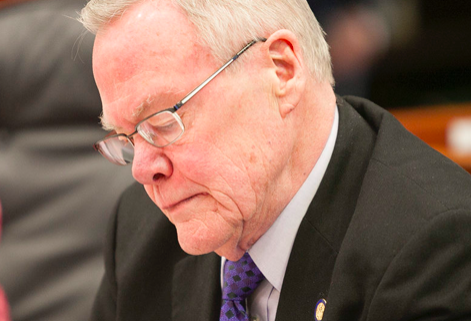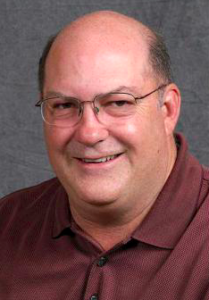COMMON CORE + OIL TAXES = FAIL
By ANDREW JENSEN
ALASKA JOURNAL OF COMMERCE
Nobody could blame Rep. Justin Parish for loving the sound of his own voice.
The problem is that everything that comes out of the Juneau Democrat’s mouth regarding oil taxes following his baritone “Madam Chair” reveals a depth of knowledge that is shallower than a contact lens case.
Parish was on full, cringe-worthy display at a couple recent hearings of the House Resources Committee, where co-chair Rep. Geran Tarr, D-Anchorage, is forcing oil industry representatives to hump to Juneau yet again for more hearings on another oil tax bill that’s going nowhere.
If these hearings are good for anything — other than serving as a constant reminder that the state is on track to see its third straight year of production increases on the North Slope — it is to witness the Democrat-led Majority’s utter cluelessness on policy from definitional basics to more complex financial reporting.
First up was Parish questioning Tax Division Director Ken Alper, whom Democrats have relied upon since taking the House majority in 2016 to help craft their seemingly endless series of oil tax increases.
At the Jan. 26 hearing, Alper had an innocuous PowerPoint slide that noted Tarr’s proposal to raise the gross minimum tax from 4 percent to 7 percent is a 75 percent increase.
Parish, who once wrote that “French is the international language of freedom,” decided to wade into the universal language of math.
“We are contemplating increasing the effective rate by 3 percent,” Parish said. “It’s such a curious quirk of language. Because if we were increasing it from 1 percent to 2 percent, you could say we’re increasing the effective tax rate by 100 percent.”

Alper agreed, “Yes, doubling it.”
“Which just, on the face sounds like we’re going up to an effective tax rate of 101 percent,” Parish said. “Which is positively bizarre. I would ask you in the future not to muddle things by saying we’re increasing the effective tax rate by 75 percent when on the face of it you’d think we’re going from a 4 percent gross tax to a 79 percent tax rate, which is also a plain language reading of what you have here.”
The only thing muddled is Parish’s thinking but the problem is his muddled thinking came along with an instruction to Alper to refrain from using math because it accurately portrays the size of the tax increase Tarr is proposing.
Parish wasn’t done yet.









